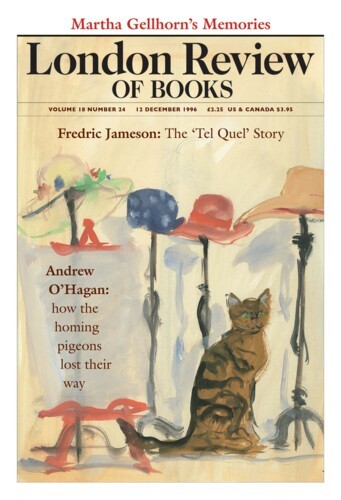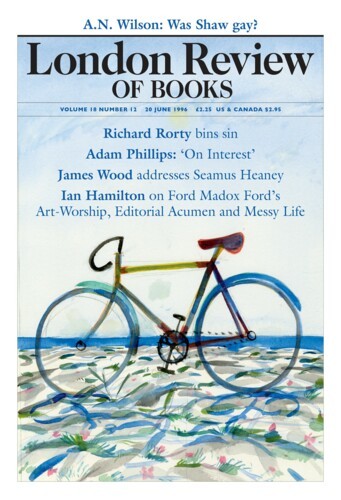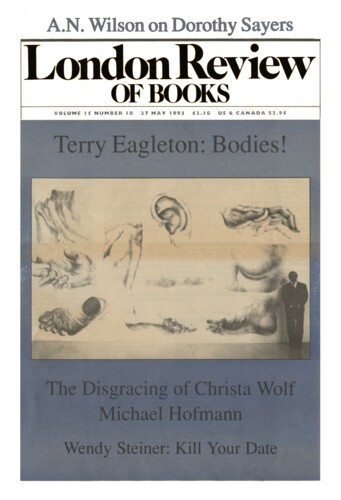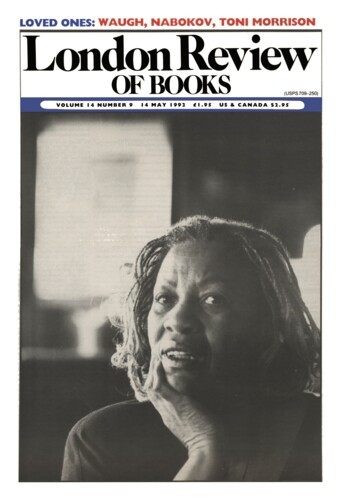I have been reading again The Mind of the Maker by Dorothy L. Sayers. Barbara Reynolds says that this book – together with her famous series of radio dramas The Man Born to be King – is her greatest work. And Barbara Reynolds should know. She is the goddaughter of Sayers; she is a distinguished Italian scholar and collaborated with Sayers on her translation of The Divine Comedy (a collaboration fascinatingly written up in her book The Passionate Intellect: Dorothy L. Sayers’s Encounter with Dante) and she has an encyclopedic knowledge of, and evident affection for, Sayers’s fiction – the detective stories about Lord Peter Wimsey especially. And now, she comes forward with what will surely rank as the definitive biography of Sayers. It is not a book which contains any surprises for those of us who have read the previous biographies. Indeed, Dr Reynolds gives us rather less, in the way of personal detail, than the recent study by David Coombes. There is far less about Sayers’s marriage, for example; but we do not feel – at any rate, I did not feel – that this is a case of suppressio veri. More an exercise in getting things in perspective. Yes, Sayers was a vicar’s daughter who gave birth to an illegitimate child (a consequence of her fondness for motorcycling ‘rough trade’); yes, in spite of being a very publicly self-confessed Christian, she was married to a divorced alcoholic who worked on the News of the World, but, Barbara Reynolds genuinely makes us feel – so what? This is not really the heart of Sayers or – to use Reynolds’s title – her ‘life and soul’. Indeed, reading this book, one feels that one of the reasons she had such an ‘odd’ sexual life is that, in all probability, she thought about it much less than she did about Dante, the Chanson de Roland and her own creations. The only child of elderly parents, she was precocious in her delight in European literature and languages, and early learnt that what goes on inside your own head is of far more interest than what passes for reality outside it. In this respect, she greatly resembles her friend and ally-against-the-pagans, C.S. Lewis, who, like her, was a lonely, intelligent child who preferred reading to life; like her, had a pretty ‘rum’ domestic ménage – which was completely contrary to the strictest rules of the Christian confession; like her, came before the public as a bluff, no-nonsense apologist for the faith. They even had certain physical qualities in common – fatness, baldness, an addiction to alcohol and tobacco on a heroic scale.’’
I have been reading again The Mind of the Maker by Dorothy L. Sayers. Barbara Reynolds says that this book – together with her famous series of radio dramas The Man Born to be King –...





